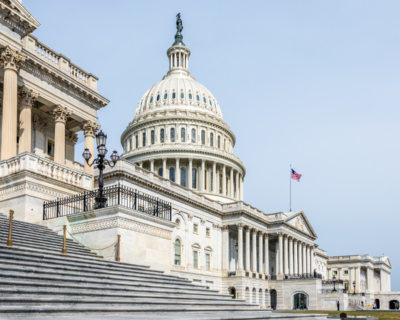State of the Union for Energy
Industry leader advocates expanded production and unveils latest research
WASHINGTON, D.C. – Yesterday the American Petroleum Institute hosted its “The State of American Energy” speech, given by their president and CEO, Jack Gerard. On the eve of the 112thcongress, more than 200 hundred guests heard Gerard’s call for increased access to known reserves and an awareness of the disincentives associated with tax burdens.

API is a national trade association with 400 corporate members from the oil and natural gas industry, and Gerard’s speech coincided with the release of API’s “The State of American Energy” report. Gerard also introduced new research, “Energy Policy at a Crossroads,” from Wood Mackenzie, an international, energy consulting firm.
The findings on offer and API’s prominence drew influential politicians such as Fred Upton (R-Mich.), incoming chairman of the House Energy and Commerce Committee, and leaders from other industries such as trucking, construction, and iron and steel. (Click the image above for a four-page summary of “The State of American Energy” report.)
Gerard began by asserting an inextricable link between the energy industry and economic concerns of Americans, particularly for employment and tax revenue. He noted 2.1 million workers directly employed in the oil and natural gas sectors, with salaries in the exploration and production phases at more than double the national average. Each day, according to API calculations, the U.S. Treasury receives $95 million in taxes from oil and gas revenues.
The state of American energy is strong,” he said, “but it will remain strong only if policymakers chart a course of opportunity and certainty.” In addition to predictability and consistency of oversight, he expounded two specific policy themes: greater access and restrained taxation.
“There are vast reserves of domestic resources that are currently off limits to exploration and production.” These resources, he believes, could make us “less reliant on others, generate an additional $1.7 trillion in government revenue over the life of the resources and create hundreds of thousands of new jobs.” However, “the political will must be there to make it a reality.”
Jackie Savitz, senior campaign director of Oceana, the world’s largest ocean conservation organization, counters that in the long-term oil and gas will prove counterproductive to America’s interests. She argues that they are “driving climate change and ocean acidification, the costs of which will cut into, if not overshadow the economic returns.”
With regard to taxation, Gerard noted the potential for expanded production to help resolve the federal deficit, to the extent of an annual $150 billion by 2025. However, he cautioned against the temptation to raise taxes on the oil and natural gas sector.
“Our industry already pays an effective tax rate of 48.4 percent of pre-tax, net income – nearly double what other industries pay.” Even higher would be “punitive,” and he cited Wood Mackenzie’s new research to infer that increased tax rates would decrease government revenue. “The negative economic consequences of higher taxes more than offset any short-term tax revenue gains.”
However, Heather Emmert of Environment America, a federation of state-based environmental advocacy organizations, counters that oil and gas firms receive subsidies in the form of targeted tax breaks, and for what she describes as “dangerous, dirty, and finite sources of energy.”
“Now is the time to start making the shift away from these sources of energy by transferring oil and gas subsidies to the clean energy industry… Other countries’ clean energy technology is far more advanced than ours.”
Gerard addressed last year’s tragedy in the Gulf, voicing his pride in the industry’s response to what he described as a rare event in 60 years of commitment to safety. Already, he said, industry created task forces are helping to improve safety, both through regulations and higher voluntary standards.
Emmert, as Gulf States field organizer based in New Orleans, takes particular exception with this assertion. She believes “the disaster was a direct result of cutting corners and ignoring safety measures… Mr. Gerard is certainly glossing over the real situation in an effort to uphold the public image of the industry.”
Click here for a transcript of Jack Gerard’s speech, and click below for the audio (39 minutes).
[audio:http://cdn.statehousemedia.com/louisiana/2011-01-05/JackGerard.mp3]
Fergus Hodgson is the capitol bureau reporter with the Pelican Institute for Public Policy. He can be contacted at fhodgson@pelicanpolicy.org, and one can follow him on twitter.




